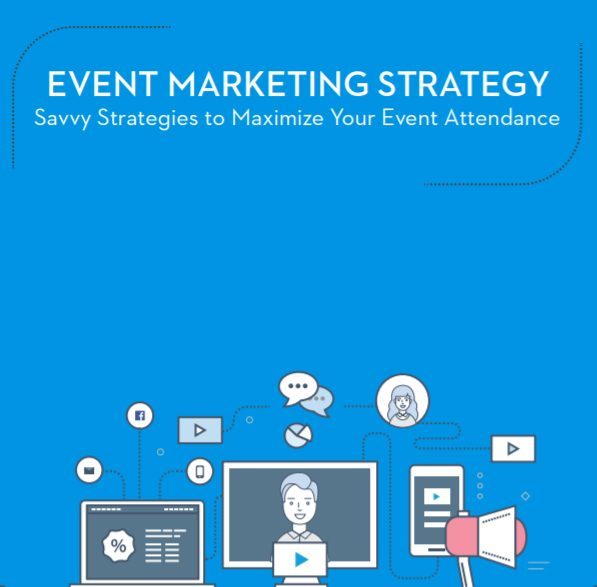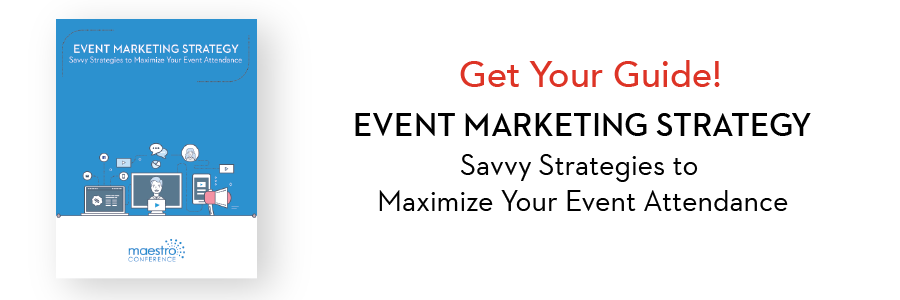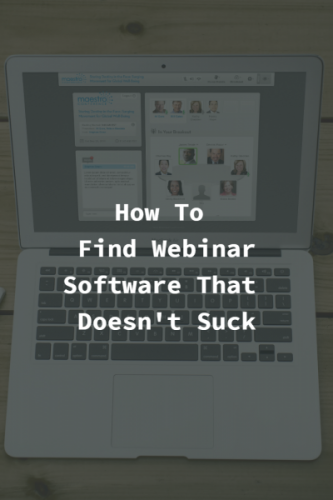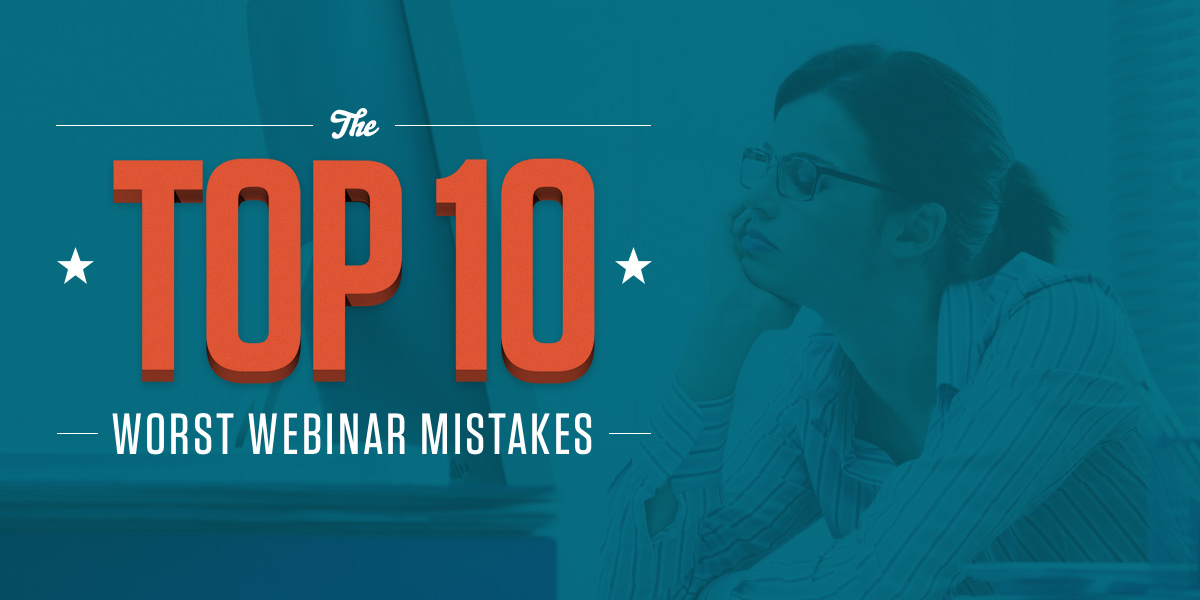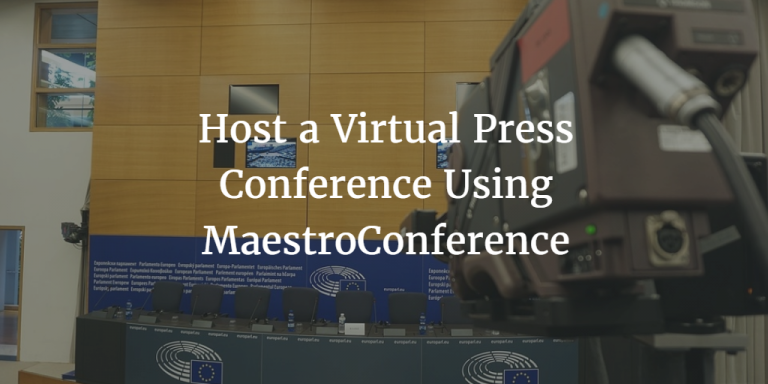Event Marketing Strategy: How To Promote Your Events for FREE
Contrary to popular belief, you don’t need to spend a fortune to market and promote your events. Regardless of whether you’re hosting virtual or IRL (in real life) events, there are a bunch of ways to maximize event attendance without the risk of sending your brand to the poorhouse.
Here at MaestroConference we’ve been helping our customers host thousands of online events, conference calls, and highly interactive webinars since 2009 with over 8 million participants and counting. Though there are many ways to market events, we focus on the ones we have personally found to be the most effective. These savvy event marketing strategies are not only effective but will also save you from spending a huge amount of money on webinar promotion.
For your reading pleasure and convenience, we’ve compiled a lengthy, comprehensive (read: EPIC!) guide to help with your event marketing efforts, the just-now-published guide, “Event Marketing Strategy: Savvy Strategies to Maximize Your Event Attendance”! Download it here now.
If you’re not ready to dive into such an epic guide on event marketing strategies, we’ve written a brief snippet below.
1.) Take full advantage of hugely popular sites
With millions of users, these platforms are a great way to promote your events to a large audience with minimal effort. Begin promoting your event on these social media pages at least two to three weeks before the event (preferably two to three months before if possible), increasing the volume and frequency of your posts as you get closer to the event date.
Share bite-sized morsels about the topic that will be covered during the event in your social media posts. You want to tease your audience with an appetizer, not serve them the full entree before your event even starts.

Create an event on Facebook and promote it on your business page. Be sure to create an eye-catching cover photo with a resolution of 1920 x 1080 pixels that evokes the feeling of excitement.
Having an attention-grabbing photo or a well-designed banner will encourage your attendees to share it with their friends. For more tips on how to create an event on Facebook and use Facebook ads to promote your event, click here.
Don’t forget to send invitations to related Facebook pages via private message or as a comment on a few of their popular posts but be sure not to appear spammy. One to two comments will surely attract the right audience. For example, if your event is about the water crisis, then send invitations to Facebook pages or groups which show concern for the environment.
Send Twitter invites to your followers by mentioning them in your tweets and/or send them a direct message inviting them to the event. Asking your followers to retweet your post is also an effective way to increase reach.
Don’t forget to attach your event poster to your tweet with a link back to the Facebook event page or to the event landing page on your website. This not only promotes your event but drives traffic to your website as well. It’s like hitting two (Twitter) birds with one stone!
Next step is to find relevant people on Twitter who you think will be interested in your event. For example, if your event is about equity crowdfunding, then look for Twitter users who are interested in angel investing, or kickstarter campaigns, or venture capital. One of the best websites to find people who may be interested in your event is Buzzomo. Krowdster, LinkedIn, and Quora are also good places to find your prospect investors, target audience or attendees.
To do this, you need to identify the right keywords to target to focus on people that would possibly be interested in your event. Once you’ve identified the keywords, you can start searching for them using the Twitter Search Button. Once you have the list compiled, follow those Twitter users or mention them in your tweets. This will surely grab their attention.
Make sure you have pinned your tweet about your event on top of your Twitter profile page so they can easily see it when they click through to view your profile. If you have a poster for your event, make it your cover photo too.
Unlike email, most tweets are missed as they flow through the Twittersphere, so it’s advisable to tweet early and heavily. You can use Hootsuite, a great tool for scheduling your tweet in advance.
It’s no doubt LinkedIn is a great platform for promoting events so don’t disregard this platform, especially if your webinar is targeted at B2B professionals.
Start by writing a status update mentioning your event, and then post several times, sharing details, agenda and other info about your event.
Be sure to post at different times of the day and on different days of the week.
If you’re a company or your brand has multiple employees, encourage them to like, share and comment on your post to increase traction.
Sending personal invitations to your connections will also help with improving your event turnout.
2.) Make use of free event listing websites
There is a growing catalog of event listing sites with free features, so we’ve hand-picked some of the most well-known (i.e. heavily trafficked) sites where you should focus your time and energy first:
-
- Eventbrite – the largest, most popular event listing site also allows you to sell tickets, manage and track registrations, add social sharing features to your listing, and a whole bunch of other tools and tricks to spread the word about your brand. Eventbrite’s community is strong, large and engaged, so you want to start here.
- Spingo – with a network of over 1500 news and media sites, Spingo can distribute your event across many event calendars with one single event listing. In addition to event listing, they offer a full event management software that will help you manage your entire event logistics, including schedules, volunteers, guests, panelists, venues, and more, all from one place.
- Evvnt – promote your event to 40+ event listing sites based on your events category and location.
- EventSetter – provides an easy and convenient way for individuals, groups, and businesses to promote events online. EventSetter users can now post virtual events, tickets, and offers in thousands of cities and communities around the world.
- Eventful – is owned by MTV and is very popular for music, community and educational events. This site has an email newsletter that reminds users of upcoming events in their area. This is definitely more of a consumer-based website and would be recommended for charity, free promotional events or even a booth promotion at large events. Eventful currently has 22 million registered users
- GlobalEventsList – reach your target audience, create a comprehensive and customizable portal to your event, including key details, a description, Google maps, speakers, links to social media, and multimedia content, connect your event listing directly to your Twitter feed to enhance interaction with your audience.
- EventGuru – your free event listing is instantly syndicated to social media, public calendars, and search engines.
- Craigslist – listing your event on Craigslist provides more free publicity than flyers or word of mouth.
- Backpage – offers classified listings for a wide variety of products and services including automotive, jobs listings, and real estate. In 2011, Backpage was the second largest classified ad listing service on the Internet in the United States after Craigslist
Online event promotion is no easy feat (which is why we didn’t post our 30-page guide here on the blog). Fortunately, there are now a variety of free tools available at our disposal, many of which we cover in great detail in the guide.
Whether you choose to use one method or all of them (or none of them if you’re already on top of these channels), what matters is that you understand just how effective an online event promotion campaign can be, even with a limited budget, especially when we are using the right tools.
Need some event marketing tools? We’ve got you covered here.

